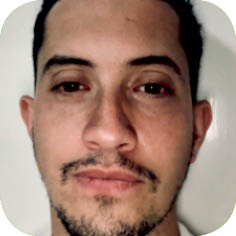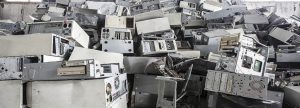Almost daily, each one of us reads an article, watches a news report, or discusses a pressing environmental issue – either something to do with global warming, air pollution, or “circular economy,” a magical term that has recently come to light in contrast to the concept of a linear economy, in which goods are manufactured from virgin raw materials to be consumed and finally disposed of in a giant hole in the ground at the end of their usable life. A circular economy circulates waste material back into the economic machine as secondary raw material to produce new consumable goods.
As you walk the streets of many Palestinian cities, you cannot miss the site of a large metal container full of plastic bags, paper, metal cans, food leftovers, etc. Yes, it sounds like a garbage container! Very often, you will come across a TV, an oven, or an old computer thrown in with all that garbage. You will wonder where Palestine stands with respect to the circular economy, especially when you know that sooner or later all this garbage will end up buried somewhere near Jenin (Zahret a-Finjan landfill) or Bethlehem (Al-Minya landfill), because alternative options for solid waste management are unfortunately not available in Palestine.
Electronic waste (yeah!) is partially finding its way into the Palestinian recycling industry. But sadly, all these efforts are informal, unregulated, and often utilize dangerous processing methods. Burning copper wire to recover copper from its plastic insulation results in black smoke that contains a brew of carcinogenic fumes that pollute vast areas of scarce agricultural land and populated areas with polybrominated diphenyl ethers (PBDEs) and polychlorinated dibenzo-p-dioxins.
Such activities are seen as an environmental crime according to Palestinian law and are often conducted in areas where Palestinian law enforcement is restricted. The Palestinian Environmental Quality Authority has been trying to address this problem for many years. However, the lack of a “real” solution that is acceptable to all stakeholders has meant that many of these efforts have been unsustainable.
Aiming to change this reality in January 2016, Ecotech Recycling was born. It is the first Palestinian company licensed by the Palestinian Ministry of National Economy and approved by the Environmental Quality Authority to recycle electronic and electrical waste.
Located in the Bethlehem Industrial Estate, the Ecotech recycling plant was designed to process up to 500 tons of electronic waste per year. The waste is mechanically shredded into small pieces, and the various metals are then recovered based on their density. Copper, steel, tin, and aluminum, among other precious metals such as gold and silver, are produced as secondary raw materials. They are then shipped globally to metal refineries and consequently transformed into new consumer products.
A circular economy circulates waste material back into the economic machine as secondary raw material to produce new consumable goods.
The recycling process was purposely designed for the recovery of material, so any data stored on CDs and hard drives will be completely destroyed. When you bring your old electronics to Ecotech, you can be sure that all your waste will be recycled securely and responsibly.
Ecotech Recycling already has a vast network of partners and connections both locally and internationally and is always looking to expand its collaboration network with public and private organizations, local authorities, and international cooperation agencies in the field of circular economy, solid waste management, and recycling.
Ecotech can be found in Lot 36 of the Bethlehem Industrial Estate, Bethlehem, Palestine. For more information, contact anton.ecoteckrecycling@gmail.com, or visit www.ecotech-recycling.com.




